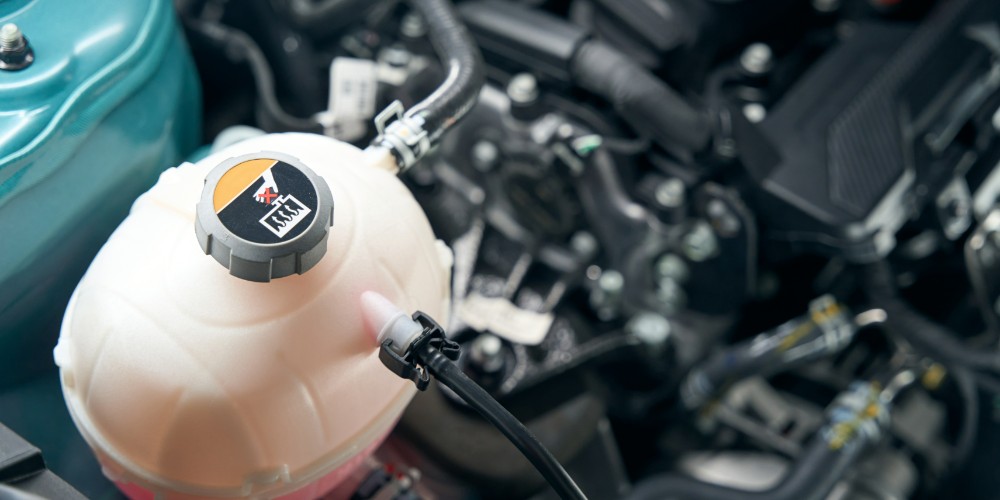Hire Purchase (HP) Car Finance is a popular method for individuals looking to acquire a new vehicle without paying the full price upfront. This arrangement allows customers to purchase a car by making an initial deposit, followed by monthly instalments over a fixed term. At the end of the agreement, the customer has the option to own the vehicle outright by paying a final ‘option to purchase’ fee.
Key Takeaways
- HP Car Finance allows customers to spread the cost of a car with an initial deposit and monthly payments.
- Eligibility, financial commitment, and consumer protections are core aspects of the finance agreement.
- The process involves a clear application, transparent terms, and an option for eventual ownership.
What is HP car finance?
Hire Purchase (HP) is a financing arrangement where an individual agrees to pay for a car across a set period of time. Ownership of the car is transferred to the individual only after all payments, including interest, have been made.
How hire purchase works
Under Hire Purchase agreements, the purchaser makes an initial deposit followed by monthly payments. The key steps are as follows:
- Sign a contract agreeing to the terms of the Hire Purchase.
- Pay an initial deposit (typically a percentage of the car’s price).
- Make fixed monthly payments over an agreed period.
- Gain ownership of the vehicle once the total amount due is fully paid.

Benefits of using HP car finance
Hire Purchase (HP) Car Finance offers a straightforward route to car ownership with clear, manageable financial arrangements.
Fixed monthly payments
HP Car Finance ensures fixed monthly payments throughout the term of the agreement. Customers benefit from knowing exactly how much they will pay each month, aiding in budgeting and financial planning. There are no fluctuations in payment amounts due to interest rate changes, providing a stable financial commitment.
Ownership prospects
At the end of the HP agreement, customers have the option to own the vehicle outright after making a final payment often referred to as the “Option to Purchase” fee. This clear path to ownership is compelling for those who prefer to keep a vehicle long-term without mileage limitations or potential lease-end charges.
Eligibility criteria
When considering HP (Hire Purchase) Car Finance, potential borrowers must meet certain eligibility requirements. These criteria typically revolve around credit history and income stability, which are assessed to ensure that the borrower can reliably meet repayment obligations.
Credit score requirements
A satisfactory credit score is imperative for approval in an HP Car Finance application. Financial institutions commonly seek applicants with a credit score that reflects responsible credit behaviour.
- Minimum Credit Score: Typically, a credit score above 600 is required, although this may vary between lenders.
- Impact on Terms: An applicant’s credit score may influence the interest rate offered and the need for a down payment.
Income verification
Lenders require proof of steady income to validate the borrower’s ability to repay the loan.
- Proof of Income: Recent payslips or bank statements are usually necessary.
- Employment Status: Stable employment, often for a minimum of 6 months, is commonly required to qualify.

Application process
The application process for HP car finance typically involves a streamlined submission of documents and a transparent approval timeline.
Document submission
Applicants must provide a set of specific documents to initiate the financing process:
- Valid Identification: A copy of a driving licence or passport.
- Proof of Income: Recent pay slips or tax returns.
- Proof of Residence: A utility bill or bank statement with current address.
- Bank Details: For setting up a direct debit arrangement.
Approval timeline
The timeframe for finance approval is as follows:
- Initial Review: Within 24 hours of submitting documents.
- Credit Checks: Completed within 2-3 business days.
- Final Approval: If all criteria are met, final approval can be expected within 5 working days.
Financial considerations
When considering HP car finance, one should pay close attention to the interest rates, deposit requirements, and the various fees and charges associated with the agreement.
Interest rates
Interest rates on Hire Purchase (HP) agreements can significantly impact the total cost of financing a car. They are determined based on the credit score of the borrower and the terms set by the lender. Fixed interest rates ensure that monthly payments remain constant throughout the term, aiding in budget predictability.
Deposit requirements
The deposit is the initial amount paid upfront when entering into an HP agreement. Typically, a higher deposit leads to lower monthly instalments, as it reduces the principal amount financed. Deposit requirements usually equate to around 10-20% of the car’s purchase price.
Fees and charges
A variety of fees may be attached to an HP car finance agreement:
- Arrangement fee: A one-time charge for setting up the finance agreement.
- Administration fees: Costs for processing paperwork and payments.
- Early repayment fees: Charges that may apply if the agreement is settled prior to its scheduled end date.
- Late payment fees: Additional costs that accrue if instalments are not paid on time.
Careful examination of these fees can prevent unexpected financial burdens during the car financing process.

Termination of agreement
In the event that a customer wishes to terminate their HP Car Finance agreement, they have certain options and obligations. Ensuring clear understanding of these is crucial for a smooth termination process.
Early settlement options
Customers have the right to end their hire purchase agreement early by paying off the outstanding balance. This balance may include a rebate of interest, as the agreement is being settled prior to its full term. The specifics of the calculation are typically found in the terms and conditions of the contract.
Settlement Figure: The settlement figure is the total amount owed, minus any rebate on interest.
- Calculation: Settlement amount = Outstanding balance – Interest rebate
- Notice: Customers must notify the lender in writing if they intend to settle early.
Consequences of default
If a customer defaults on their HP Car Finance agreement, the consequences are enforced as per the terms agreed upon at the start.
Repossession: The finance company may repossess the vehicle if contractual payments are not maintained.
- Condition: The lender can only repossess the vehicle after 50% of the total payable amount has been paid, unless they obtain a court order.
Credit Impact: Defaulting will likely negatively affect the customer’s credit score.
- Records: Defaults are recorded on the customer’s credit file, impacting future borrowing capabilities.
Comparative analysis
The examination of Hire Purchase (HP) finance alongside other financing options provides a clear understanding of its benefits and limitations in relation to alternatives.
HP vs PCP Finance
Hire Purchase (HP) and Personal Contract Purchase (PCP) are two prevalent methods of car financing. HP involves paying instalments over a set period, after which the buyer becomes the owner of the vehicle. In contrast, PCP allows lower monthly payments with a large final payment if one chooses to keep the car at the end of the term.
| Features | HP Finance | PCP Finance |
|---|---|---|
| Monthly Payments | Typically higher, as you’re paying off the full value of the car | Lower, as you’re only paying off the depreciation |
| Ownership | Automatically granted at the end of the payment term | Optional with a final balloon payment |
| Flexibility | Less flexible, as there is no balloon payment option | More flexible with options to return, keep, or exchange the car |
🚗 Read more: HP vs PCP car finance – What’s the difference?
HP vs Leasing
Hire Purchase and leasing (Contract Hire) differ primarily in terms of ownership. With HP, one is paying toward owning the car at the end of the agreement, while with leasing, one simply rents the car and returns it without the option to own.
| Features | HP Finance | Leasing |
|---|---|---|
| Monthly Payments | Aims to pay off the entire vehicle’s value, potentially resulting in higher payments | Payments cover rental cost; generally lower than HP |
| Ownership | Results in ownership after final payment | No ownership; the vehicle is returned at the end of the lease |
| Commitment | Long-term commitment until the car is paid off | Short to medium-term commitment with no concern for resale value |
Consumer Rights and Protections
When consumers engage with HP (Hire Purchase) Car Finance, they are safeguarded by several rights and protections under UK law. The Consumer Credit Act 1974 governs HP agreements and provides consumers with specific rights. For instance:
- Right to Withdraw: Consumers have the right to withdraw from the finance agreement within 14 days of signing without giving any reason.
- Quality Guarantee: The vehicle must be of satisfactory quality, fit for purpose, and as described, under the Sale of Goods Act 1979.
| Key Protection | Description |
|---|---|
| Voluntary Termination | Consumers may terminate the HP agreement after paying half of the total amount payable. |
| Right to Information | Lenders must provide clear information about the agreement, including interest rates and total amount repayable. |
| Repossession Rules | If less than one-third of the HP price has been paid, the car can be repossessed without a court order; otherwise, lender must get a court order. |
Additionally, the Financial Conduct Authority (FCA) regulates car finance companies and ensures they treat consumers fairly. Consumers should be aware that they:
- Are entitled to a cooling-off period.
- Must be informed about total costs.
- Should receive clear pre-contractual explanations.
- Must not be subject to unfair business practices.
Lastly, any disputes can be taken to the Financial Ombudsman Service if unresolved with the lender. They are ensured a balanced and fair judgment regarding any conflicts with the finance provider.
Frequently Asked Questions
What are the advantages and disadvantages of hire purchase for cars?
Hire purchase (HP) allows individuals to pay for a car over time, making ownership more accessible. Advantages include spreading the cost and potential ownership at the end of the agreement. However, the car is not owned until the final payment, and typically, higher overall costs are incurred compared to paying upfront.
How can one calculate monthly payments using an HP car finance calculator?
Monthly payments on an HP agreement are calculated by adding the total cost of the car (minus any deposit), the interest charged by the finance company, and any fees, then dividing this total by the number of months in the agreement’s term.
What should one consider when looking at HP car deals in the UK?
When assessing HP car deals in the UK, scrutinise the interest rate, the total amount repayable, the deposit required, the length of the term, and any additional fees. It’s also important to compare deals from different providers to ensure competitive pricing.
How does hire purchase compare to a traditional car loan?
Compared to a traditional car loan, hire purchase agreements often have higher interest rates but can offer more flexibility in terms of deposit amount and repayment structure. The car serves as security in an HP agreement, which means it can be repossessed if payments aren’t made, unlike with some car loans.
What factors determine the value of HP finance for purchasing a car?
The value of HP finance for purchasing a car is influenced by the credit score of the borrower, interest rates, the length of the term, the vehicle’s price, the deposit laid down, and the car’s residual value at the end of the term.
What does the HP finance term encompass in the context of vehicle financing?
The term ‘HP finance’ encompasses the process where a customer agrees to a contract to purchase a car by paying an initial deposit and clearing the balance, plus interest, in instalments over a set period. Ownership is transferred from the finance company to the individual once all payments are made.
🚗 You might like this guide: Hire purchase vs leasing: What’s right for you?





